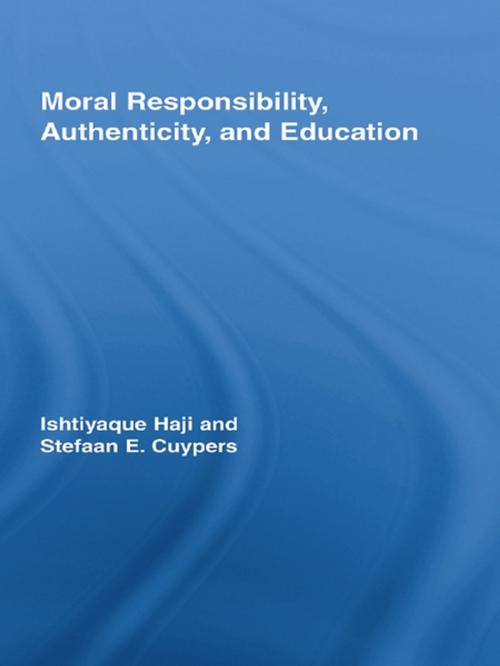Moral Responsibility, Authenticity, and Education
Nonfiction, Reference & Language, Education & Teaching, Educational Theory, Philosophy & Social Aspects, Religion & Spirituality, Philosophy, Ethics & Moral Philosophy| Author: | Ishtiyaque Haji, Stefaan E. Cuypers | ISBN: | 9781135924713 |
| Publisher: | Taylor and Francis | Publication: | June 25, 2008 |
| Imprint: | Routledge | Language: | English |
| Author: | Ishtiyaque Haji, Stefaan E. Cuypers |
| ISBN: | 9781135924713 |
| Publisher: | Taylor and Francis |
| Publication: | June 25, 2008 |
| Imprint: | Routledge |
| Language: | English |
The primary purpose of this book is to explain the distinction, on the one hand, between indoctrination and education, and, on the other, between responsibility-subverting manipulation and mere causation. Both are elucidated by an appeal to common ground, an account of when our motivations and other springs of action are "truly our own" or "authentic." The book progresses from analyses of the sort of agency that responsibility requires and the authenticity of our motivations, together with a discussion of the relevance of these analyses to manipulation and related problems in the philosophy of education, to a defense of the thesis that responsibility from love's standpoint is of vital significance, and the implications of this thesis for what the authors deem to be legitimate goals of education and other issues in free will.
Philosophers and advanced students working in free will, moral psychology, and the philosophy of education will find this text to be extremely useful.
The primary purpose of this book is to explain the distinction, on the one hand, between indoctrination and education, and, on the other, between responsibility-subverting manipulation and mere causation. Both are elucidated by an appeal to common ground, an account of when our motivations and other springs of action are "truly our own" or "authentic." The book progresses from analyses of the sort of agency that responsibility requires and the authenticity of our motivations, together with a discussion of the relevance of these analyses to manipulation and related problems in the philosophy of education, to a defense of the thesis that responsibility from love's standpoint is of vital significance, and the implications of this thesis for what the authors deem to be legitimate goals of education and other issues in free will.
Philosophers and advanced students working in free will, moral psychology, and the philosophy of education will find this text to be extremely useful.















